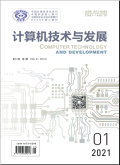计算机技术与发展2024,Vol.34Issue(4):24-29,6.DOI:10.20165/j.cnki.ISSN1673-629X.2024.0004
基于空间投影和聚类划分的SVR加速算法
An Accelerator for SVR Algorithms Based on Spatial Projection and Clustering Partitioning
摘要
Abstract
Data not only generates value,but also provides the impetus for the scientific development of statistics.With the rapid development of science and technology,massive data has emerged,but the large-scale data makes it difficult for many traditional processing methods to meet the needs of data analysis in various fields.Facing the inefficiency of learning algorithms in the era of massive data,partitioning is usually considered as the most direct and widely used strategy to solve this problem.SVR is a powerful regression algorithm with wide applications in the fields of pattern recognition and data mining.However,SVR is inefficient in training when dealing with large-scale data.For this reason,we propose a SVR acceleration algorithm based on spatial projection and clustering division(PKM-SVR)by utilizing the idea of partitioning.The projection vector is used to project the data into a two-dimensional space;the clustering method is used to divide the data space into k disjoint regions;the SVR model is trained on each region;and the SVR model in each region is used to predict the to-be-recognized samples that fall into the same region.Comparison experiments are conducted with the traditional data partitioning method on standard datasets,and the experimental results show that the proposed algorithm is faster to train and exhibits better prediction performance.关键词
大规模数据/分治法/支持向量回归/主成分分析/聚类Key words
large-scale data/divide and rule method/support vector regression/principal components analysis/clustering分类
信息技术与安全科学引用本文复制引用
王梅,张天时,王志宝,任怡果..基于空间投影和聚类划分的SVR加速算法[J].计算机技术与发展,2024,34(4):24-29,6.基金项目
国家自然科学基金项目(51774090) (51774090)
黑龙江省博士后科研启动金资助项目(LBH-Q20080) (LBH-Q20080)

